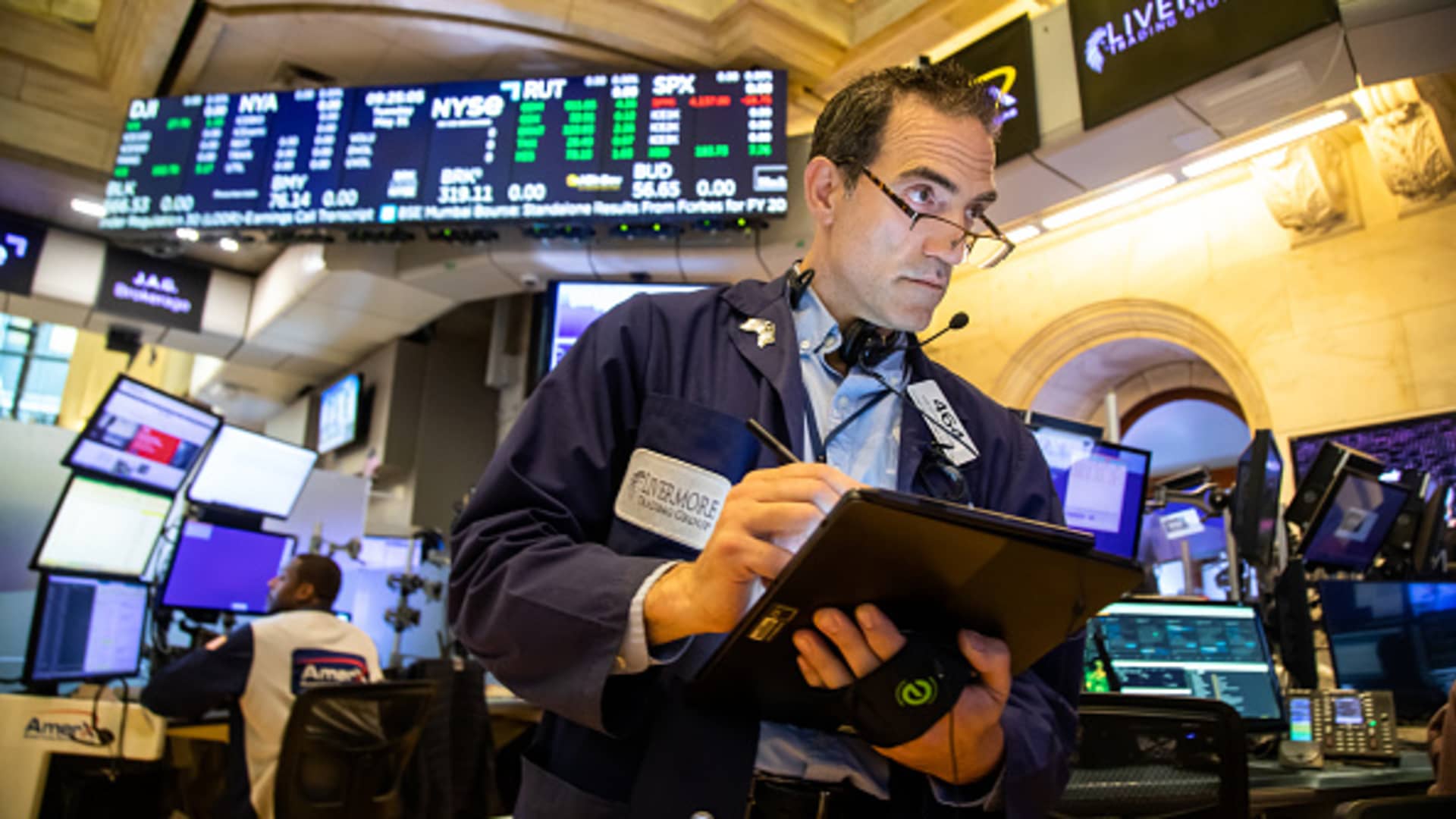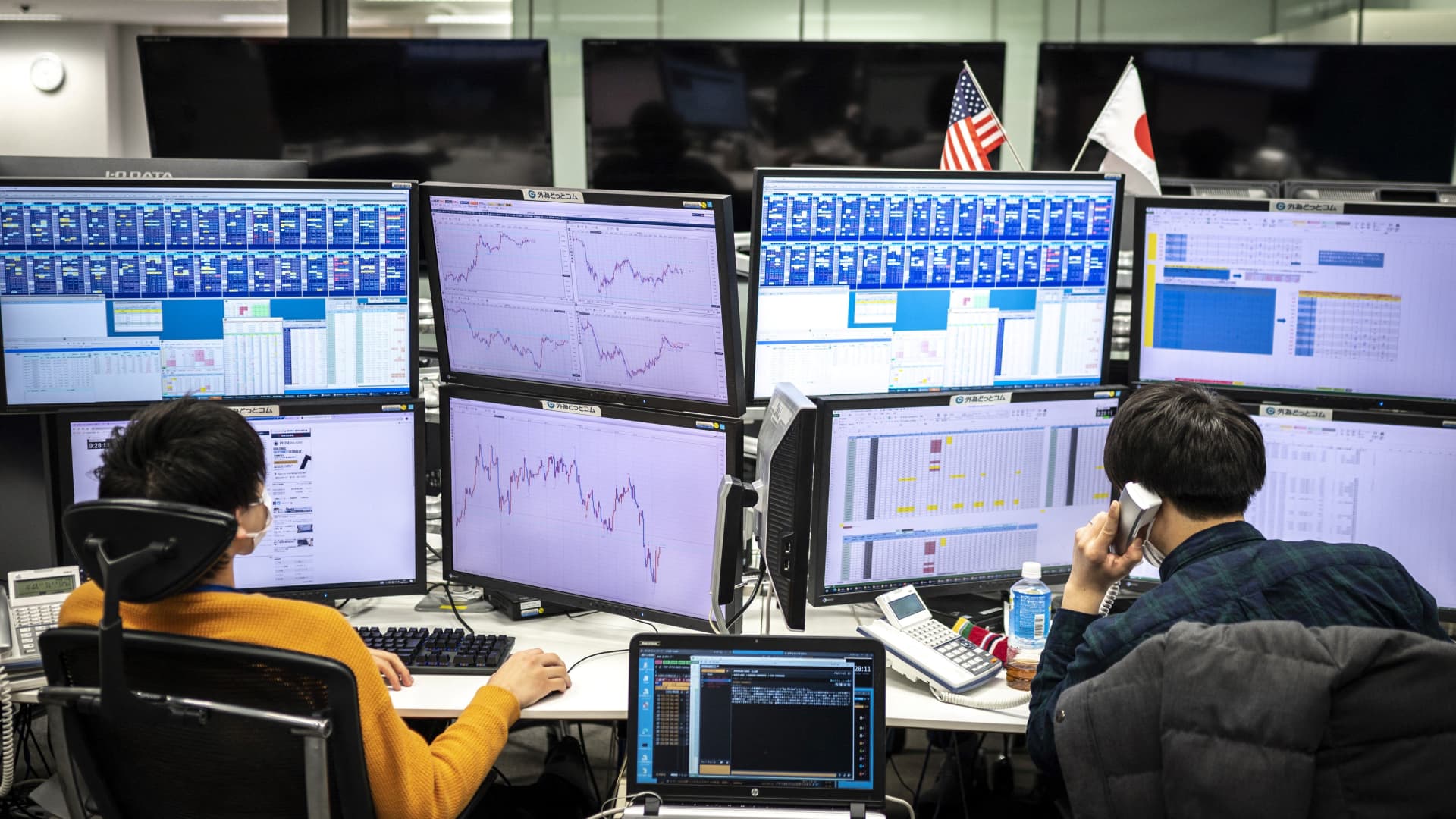Dow jumps 300 points as Wall Street looks to bounce back from losing week
The action followed another disappointing week for investors as the major averages suffered modest losses.

Stocks moved broadly higher on Monday as Wall Street tried to rebound from a losing week.
The Dow Jones Industrial Average gained 328 points, or 1%. The S&P 500 and Nasdaq Composite rose 1.5% and 1.9%, respectively.
Sentiment got a boost on after Beijing rolled back some Covid-related restrictions. Meanwhile, The Wall Street Journal reported that Chinese regulators are wrapping up their investigations into ride-hailing giant Didi — potentially signaling that the country's crackdown on its tech sector may be coming to an end.
Overseas, stocks rose more than 1% in China and over 2% in Hong Kong. Shares of Didi jumped more than 50%.
"Since those lows near 3,800 in the S&P 500 there has been real progress: China is reopening and hopefully the economy will be close to operating at near-full capacity within a month. That will add a large tail-wind to the global economy, and perhaps most importantly, ease supply chain stress," Tom Essaye of the Sevens Report said in a note.
Tech stocks rose in the U.S., with Apple gaining more than 1%. Shares of Amazon rose 2% following a 20-for-1 stock split.
Elsewhere, solar stocks moved higher after the Biden administration moved to suspend tariffs on solar panel products from four countries.
Bank stocks also gained ground, with JPMorgan and Citibank adding more than 1% each, as interest rates rose. The 10-year U.S. Treasury yield climbed back above 3%.
Monday's action followed another disappointing week for investors as the major averages suffered modest losses. The blue-chip Dow fell 0.9% for its ninth negative week in 10, while the S&P 500 and the Nasdaq Composite lost 1.2% and 1%, respectively, last week for their eighth losing week in nine.
Investors have been grappling with fears that the central bank could raise interest rates too fast and too much, causing a recession. Recent statements from the policy-setting Fed members indicate that 50 basis point — or a half-percentage-point — rate increases are likely at the June and July meetings.
The U.S. economy added 390,000 jobs in May, which came in better than expected despite fears of an economic slowdown and amid the roaring pace of inflation.
"In our view, last week's economic data showed the US economy remaining resilient," John Stoltzfus, chief investment strategist at Oppenheimer, said in a note to clients.
Some investors believe the strong hiring data could be clearing the way for the Fed to remain aggressive.
"For now, the market sees a Federal Reserve trying to navigate a painful and bumpy road, yet trying to find a soft exit," said Quincy Krosby, chief equity strategist at LPL Financial. "And the market finds itself between wanting to believe in the rallies but not believing that the Fed can negotiate a soft landing."
Stock picks and investing trends from CNBC Pro:
Investors will be focused on the consumer price index reading for May, which is slated for Friday morning release. The key inflation gauge is expected to be just slightly cooler than April, which could be interpreted by some as a confirmation that inflation has peaked.
The stock market has had a volatile year with the major averages pulling back double digits from their record highs. The S&P 500 is off by 14.7% from its all-time high reached in January. The equity benchmark briefly dipped into bear market territory last month.

 Tfoso
Tfoso 






























